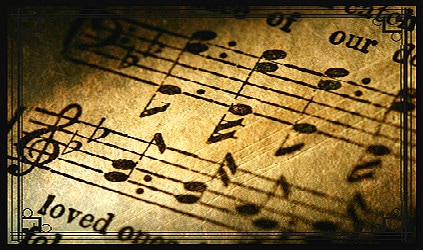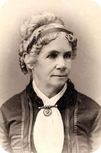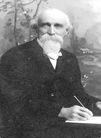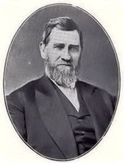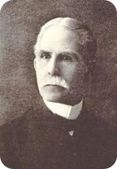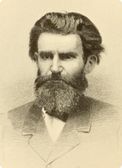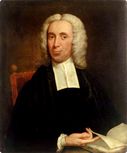|
Here are some of the hymn's we have come to love and cherish. These are not found in our regular Church Hymnal, but are being gathered into a supplement. How we love to sing the old hymns of the faith! Here are some of the hymn's we have come to love and cherish. These are not found in our regular Church Hymnal, but are being gathered into a supplement. How we love to sing the old hymns of the faith! |
|
Here is Love ~ William Reese
"Here Is Love" has been called the "Love hymn of the great Welsh Revival." We often sing this hymn when celebrating the Lord's Supper. |
|
Where Shall My Wandering Soul Begin ~ Charles Wesley
|
|
Come Ye Sinners Poor and Needy ~ Joseph Hart
Hart resisted Christianity while young, writing the pamphlet The Unreasonableness of Religion, Being Remarks and Animadversions on the Rev. John Wesley’s Sermon on Romans 8:32. However, Hart came to Christ in 1757, becoming an enormously popular preacher and hymn writer. Tens of thousands attended his funeral. |
|
I'm A Pilgrim ~ Mary S. B. Dana
|
|
Take Me As I Am ~ Eliza H. Hamilton
Years ago, while revival meetings were being held in one of the large towns in Scotland, a young girl became anxious about her spiritual condition. Returning from one of the meetings, she went to her own minister and asked him how she might be saved. "Ah, lassie," he said, "don’t be alarmed! Just read your Bible and say your prayers, and you will be all right." But the poor, illiterate girl cried out, "O Minister, I canna read, I canna pray! Lord Jesus, take me as I am!" In this way the girl became a follower of Christ; and a lady who heard of the girl’s experience wrote this hymn…I found the verses in a religious newspaper and set them to the simple music by which they are now most generally known. At the same time Mr. Stebins also found the verses and set them to music, and he sent them to me at the same time that I was sending my tune for the same words to him. In “Gospel Hymns” both tunes are published. A minister in England writes to me about a Christian woman, a shoemaker’s wife, who had a lodger that was an obstinate unbeliever. The good woman often tried to induce him to go to meetings, but in vain. Tracts which she placed on the table in his room she found crushed on the floor. She would smooth them out and again place them so as to attract his attention, but he would read nothing but his novels and newspapers. One spring the old man fell ill with bronchitis. The good woman acted as his nurse, for he had no relatives who cared for him. She used the opportunity, often speaking to him about his soul and reading the Word of God; but she could make no impression upon him. One day she was reading the hymn Jesus, my Lord, to Thee I cry, and when she came to the refrain, the old man called out to her sharply: That’s not in the book! The woman answered, Why yes, it is. He declared again that he did not believe it was in the book. The good woman told him that he could read it for himself. He asked for his glasses, and read with wonder and amazement, again and again, My only plea—Christ died for me! oh, take me as I am. A few weeks afterward he said to the woman one morning, I am going home to-day, and I am so happy, so happy! In an hour or two he passed away, repeating those words to the last. ~ Ira Sankey |
|
Is Not This the Land of Beulah? ~ Harriet W. R. Qua
|
|
Beulah Land ~ Edgar P. Stites
Stiles, the composer writes, "It was in 1876 that I wrote ‘Beulah Land.’ I could write only two verses and the chorus, when I was overcome and fell on my face. That was one Sunday. On the following Sunday I wrote the third and fourth verses, and again I was so influenced by emotion that I could only pray and weep. The first time it was sung was at the regular Monday morning meeting of Methodists in Philadelphia [Pennsylvania]. Bishop McCabe sang it to the assembled ministers. Since then it is known wherever religious people congregate. I have never received a cent for my songs. Perhaps that is why they have had such a wide popularity. I could not do work for the Master and receive pay for it. |
|
A Gladsome Hymn of Praise We Sing ~ Ambrose Nichols Blatchford
|
|
The Hallowed Spot ~ William Hunter
|
|
Lord, I Am Fondly, Earnestly Longing ~ Elisha A. Hoffman
|
|
My Latest Sun Is Sinking Fast ~ Jefferson Hascall
|
|
When I Can Read My Title Clear ~ Isaac Watts
Headley relates, in his Life of General Grant, that as the wounded were borne from the field of Shiloh, a fatally wounded captain, after speaking of his sufferings through the preceding night, said, "I could not help singing that beautiful hymn: 'When I can read my title clear.' And there was a Christian brother in the brush near me. I could not see him, but I could hear him. He took up the strain, and beyond him another and another caught it up, all over the terrible battlefield of Shiloh. That night the echo was resounding, and we made the field of battle ring with hymns of praise to God." Is This the King Return, and These the Thanks We Owe? ~ Isaac Watts |
|
There is a Happy Land ~ Andrew Young
A college student in Virginia was very proud of his intellectual abilities, and thought that if he ever became a Christian it would be through an eloquent sermon of some distinguished pulpit orator. While hunting dear during a vacation he as drawn to a gorge far away in the mountains, by the sound of a sweet female voice engaged in singing. As he drew nearer he recognized the words "There is a happy land Far, far away." At length he perceived a log cabin, and an old female slave, with hair as white as snow, standing without at her tub singing away as though her heart was over-flowing with gladness. She was unusually tall and very strait. As the young student stood enchanted with the romantic scene, he found that she was also blind, and, as she kept on singing and washing, her happy soul would become so full of joy that she would stop washing, for a while straightening up, an turning her sightless eye-balls heavenward, and would make the surrounding rocks and mountains ring as her joyful voice would sing:--- "There is a land of pure delight Where saints immortal reign." At length the student said to her, “Auntie,” I see you are blind?” "No, master,” she said, “ I'm not blind. I can’t see you, nor these trees, nor these rocks, nor these mountains, but I can see into the kingdom. I can see the 'happy land, far, far away.'” The young student was so impressed with what he saw and heard that, from that time on, he was deeply convicted of sin, and rested not till he found rest in Jesus. He eventually became a minister, and told the author that the echo of that happy slave’s song still follows him. |
